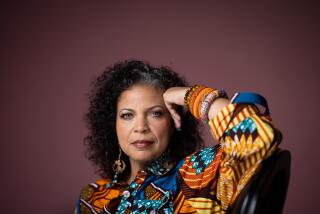The Long March Ahead for NAACP : Is This Venerable Organization Up to New Challenges?
- Share via
The National Assn. for the Advancement of Colored People opens its national convention in Los Angeles, today, at a time when black America is in crisis.
The National Assn. for the Advancement of Colored People opens its national convention in Los Angeles, today, at a time when black America is in crisis.
African-Americans remain disproportionately poor, drug-addicted, homeless, fatherless, jobless, illiterate and imprisoned--in spite of the headline successes of an Oprah Winfrey or a Colin Powell and the unsung successes of thousands of black scientists, lawyers and office workers. A significant number of black Americans have been able to step forward, but far too many have been left behind.
The challenges are daunting. The federal government can no longer be counted on to fund the kind of jobs, housing or educational programs that led to victories in the War on Poverty. More black children are growing up poor. To the sociologists, these youngsters are part of a permanent underclass mired in persistent poverty. It is up to the NAACP and the other civil-rights organizations to stimulate a new national dialogue on the seemingly intractable problems.
The Rev. Benjamin L. Hooks, the executive director of the NAACP, is expected to sound the call not only for more government attention but for greater black self-help as an antidote to crack, crime and the crisis in the black family. Hooks and the civil-rights leadership must find a way to combine message with momentum.
High on the convention agenda is a discussion of the endangered black male. African-American men fare worst in key social categories: education, employment and health. Homicide remains the No. 1 killer of young black men.
Jobs remain a civil-rights priority. Toward that end, the NAACP negotiates agreements with corporations to leverage more African-Americans into the business elite as corporate executives and upper managers, suppliers and vendors. That top-down approach tends to open up more entry-level jobs, much needed since the black unemployment rate is twice the national rate.
Political strategies are also a priority as black Americans recover from eight years of an administration that tried to turn back the clock on civil rights. The NAACP’s litmus test for President Bush is approval of the Civil Rights Act of 1990, which would restore the ability of minorities and women to fight discrimination and harassment at work.
A litmus test for the NAACP leadership is the increased involvement of black youth. To its credit, the organization hosts an Afro-Academic, Technological and Scientific Olympics (ACT--SO) that attracts 25,000 youngsters nationally. Local branches also provide tutoring and counseling to 20,000 at-risk youngsters in 57 cities. But there are millions of black youngsters who need help.
The NAACP, founded in 1909 and the granddaddy of the national civil-rights organizations, can take credit for advocating every major civil-rights advance in this nation’s divided history. When black children were denied an equal education, the NAACP led the legal challenge. When black men and women were refused all but the lowest paid and least skilled jobs, the NAACP took up the fight. When black Americans were refused the ballot, the NAACP lobbied for voting rights. The old warriors will recount these hard-won victories at the convention, but much more remains to be done.
The NAACP convention is expected to attract nearly 10,000 delegates and participants. The speeches, workshops and meetings will provide a platform to remind the nation of this unfinished business.
More to Read
Sign up for Essential California
The most important California stories and recommendations in your inbox every morning.
You may occasionally receive promotional content from the Los Angeles Times.










